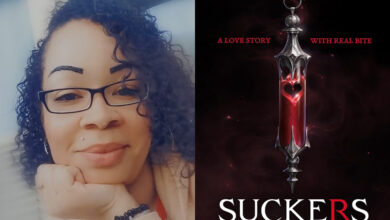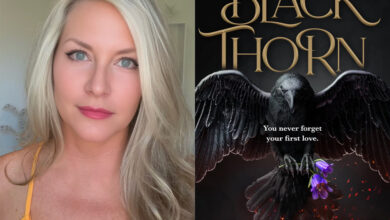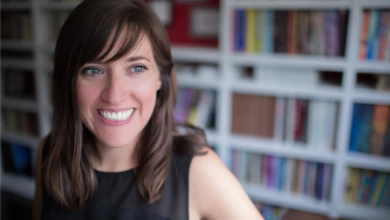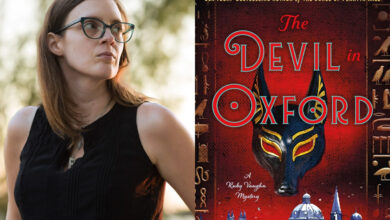Q&A with Catherine Newman, Author of November Indie Next List Top Pick “Wreck”
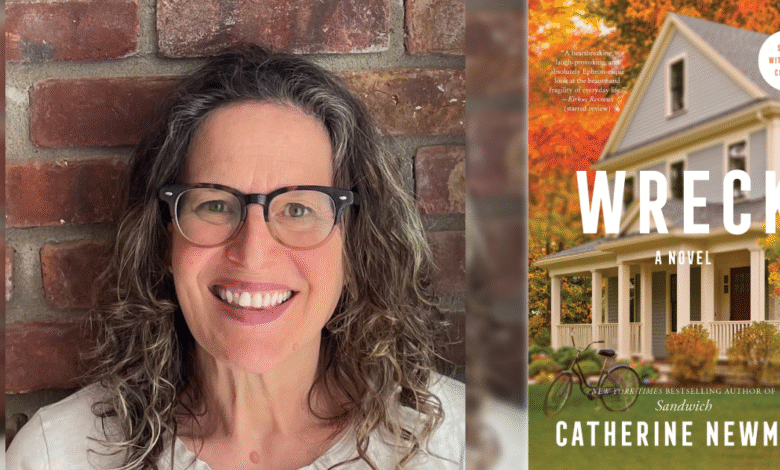
Independent booksellers across the country have chosen Catherine Newman’s Wreck: A Novel (Harper) as their top pick for the November 2025 Indie Next List.
“Catherine Newman might just be the funniest fiction writer working today. If you fell hard for Rocky and her family in Sandwich, then prepare yourself for yet another rollicking, rich literary meal,” said Rosamond Kreshak-Hayden of Broadside Bookshop in Northampton, Massachusetts.
Here, Newman discusses her work with Bookselling This Week.
Bookselling This Week: Wreck is technically a sequel, but it also stands alone really well. Did you intend it as a sequel initially? How did we get here?
Catherine Newman: I did not intend it as a sequel. But even before I started, there were so much that these characters had in common with the characters in Sandwich.
That I started to feel like it was swimming upstream to make them a different family.
It was just so obviously the same family. I just hoped that would be okay. And it seemed to be fine with my editor.
BTW: And everyone else, apparently! It really has seemed to connect with everybody.
All of your work has, but everybody seems to relate really deeply to this one. Especially the health anxiety. I mean, we’ve all had that moments where we’ve sort of been our own little Google doctors.
CN: Yes! Almost everyone that I say the words “patient portal” to laughs, because this is the world we live in now.
You get results dinged in impersonally.
They used to have to call you to be like, “You have strep throat.” And you’d be like, “Oh, no.” They’d be like, “I know, my God.”
Now there’s just a thing in your portal that’s like, “Oh, you died overnight.”
And you’re like, “Oh, okay, should I do anything about it?”
Nobody cares and no one’s there to answer any of your questions. So, you cut and paste the things you find out on your portal into Google.
And this seems to be a universal experience.
BTW: I want to ask about how you tackle all of that emotion, not just the anxiety, but all of the emotions and the connections that we get in this book. (We also see those in a lot of your other titles.)
It feels like these stories, particularly in dealing with these really heavy topics, also show this hopefulness and this humor. It feels like a really healthy way to like process our emotions through your fiction.
Do you want to talk a little bit about how you managed to balance these things?
CN: I’ve written three novels are about loss and, to some extent, are about grief.
And in my non-fictional life, almost everything makes me laugh — even really hard things.
Usually there are moments where I see some incredibly comedic irony or a good narrative element that cracks me up. I think there is truly nothing like sorrow to remind you to snatch at joy where you find it.
And because that’s true for me personally, that is translated into my character — specifically Rocky, who is a person who often seems to be simultaneously overwhelmed with sorrow and overwhelmed with gratitude.
That just seems like the only way I know how to live.
It’s just in my blood. It’s really in my DNA. I was raised partly by Holocaust-surviving Jews. Everyone has this humor response to trauma in my family.
And it doesn’t feel like the trauma response. It just feels like everything’s really funny to me.
But then my husband and I were in couples therapy once and she described humor as a crutch in our marriage. We never went back. We were like, “A crutch! It is literally the best part of our marriage.”
It was just so funny to hear someone pathologize it.
BTW: You’ve had a long writing career. You were writing long before you were writing these novels. What’s the most challenging part of writing for you? And it may be different now than it was originally.
CN: I would say there’s two really different challenging parts.
When I was writing more broadly for magazines and websites and doing consulting gigs, one of the challenging parts was really the hustle.
The writing, I love to do. That’s the career part for me, the part that feels like I’m tapping into something I’m good at.
The hustle is a grind — the part where you’re pitching and massaging ideas so that people want them.
That was just hard on an employment level. And I was stressed about money all the time. I was the primary wage earner as a freelance writer, so that was very difficult.
Now I hustle less because I’m writing fiction. But the hard thing now is writing stuff that’s very close to the bone for me and then just holding it out trustingly.
It’s like your beating heart is cupped in the palms of your hands and you’re like, “What do you guys think?”
I’m trying to be thick-skinned, but I’m sensitive to criticism and I feel very vulnerable all the time.
But maybe I make the art out of that.
BTW: Putting yourself out there is so vulnerable. That makes me nervous just thinking about it. But you’re clearly doing an amazing job and really connecting people.
CN: It totally is worth it. I don’t doubt the value of it. It’s just nerve-wracking.
BTW: We like to bring these interviews back around to books and indie bookstores. So would you tell us a little about the role that books and indie bookstores have played in your life?
CN: It is really unbelievable for me. It would truly be difficult to explain all the different ways that indie bookstores sustain me.
I’ve been touring books since my first memoir came out in 2005.
I just can’t tell you how it feels to go to an indie bookstore to do an event, to be hosted with a million guests who are also being hosted, and having this beautiful experience curated by somebody who understands why everyone’s there and how everybody feels.
And I am so aware of the indie booksellers selling the book. I connect on Instagram. I get emails. I get to see some of the Indie next nominations — which are always just completely mind-blowing because that’s extra work somebody chose to do on your behalf.
But the way I really interact is when I come to these events. It’s just magic.
You can be at an indie bookstore you have never heard of in a town you’ve never heard of, and there’ll be a hundred people there because it’s such a personal hand curated experience. That is so special.
When people say, “Oh, I’m hand selling your book,” they mean that they are hand-selling your book. A customer comes in, and they say to that person, “You should read this book,” and press it into their hands. That just totally kills me.
There’s this mutuality that’s unique to that relationship. Somebody at an indie bookstore event in New York said to me, “Hey, thanks for paying our mortgage.”
She was joking about how many copies of Sandwich they’d sold, and I was like, “Hey, thanks for paying my mortgage.”
That’s unique to the author-indie relationship. There’s nothing really quite like it.
Source link

